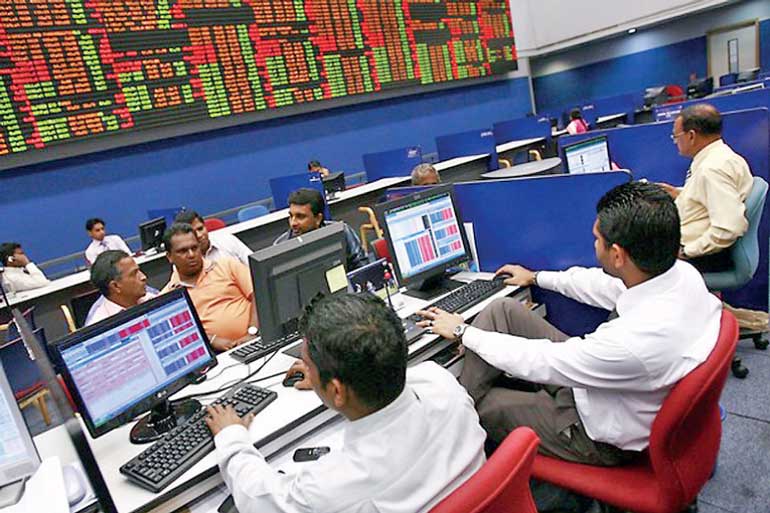Sunday Feb 22, 2026
Sunday Feb 22, 2026
Friday, 2 June 2017 00:00 - - {{hitsCtrl.values.hits}}
 Reuters: Shares rose for a second straight session on Thursday, posting their highest close in nearly one week, in high turnover with foreign investors buying into the island nations’ risky assets.
Reuters: Shares rose for a second straight session on Thursday, posting their highest close in nearly one week, in high turnover with foreign investors buying into the island nations’ risky assets.
Last week’s floods and landslides that killed over 200 people, however, weighed on sentiment.
The extent of the damage is yet to be assessed, with the country’s main agricultural exports - tea and rubber - hit by the worst torrential rains in 14 years.
Analysts said it is too early to evaluate the real impact of the floods and landslides, though short-term disruptions in rubber tapping and plucking of tea leaves and buds could lead to a decline in output.
Inflation could rise in the short term, especially due to crop damages and distribution difficulties with regard to fresh food produce and staple food items, they said.
“Market lost a little bit of heat in the morning. But with the foreign buying, the market picked up in the latter part of the day,” said Hussain Gani, deputy CEO at Softlogic Stockbrokers.
The Colombo stock index ended 0.29% stronger at 6,693.68, its highest close since 26 May.
Turnover was Rs. 1.03 billion ($ 6.74 million), more than this year’s daily average of Rs. 902.4 million.
Foreign investors were net buyers of Rs. 60 million worth of shares, extending the year-to-date net foreign inflow to Rs. 19.48 billion worth of equities. Shares of Ceylon Tobacco Co Plc jumped over 3%, conglomerate John Keells Holdings Plc gained 0.60% and Commercial Bank of Ceylon Plc, the country’s biggest listed lender, rose 1.04%.
Reuters: Rupee ended slightly firmer on Thursday as dollar selling by exporters outpaced importer demand for the US currency, even as investors weighed the consequences of weather-related damage to the economy, dealers said.
The extent of the damage due to floods and landslides is yet to be assessed, with Sri Lanka’s main agricultural exports - tea and rubber - hit by the worst torrential rains in 14 years due to the cyclone “Mora” formed in the Bay of Bengal.
Damage to agricultural exports would put pressure on the rupee, currency dealers said. Analysts said hospitality and manufacturing sectors are likely to be the worst hit.
However, dealers said there was some optimism over expected inflows in the form of international assistance, which could help offset potential downward pressure on the local currency.
Rupee forwards were active on Thursday, with spot-next forwards ending at 152.80/90 per dollar, compared with Wednesday’s close of 152.85/95 per dollar.
“Aid inflows could help the rupee, but the central bank will have to tighten interest rates to curb unnecessary credit growth and inflationary pressure,” said a currency dealer.
The floods could hurt the overall economic growth and also widen the Government’s budget deficit with high infrastructure spending, dealers said.
The rupee has been under pressure after the Central Bank Governor on 18 May said the bank would allow gradual depreciation of the currency.
The spot rupee did not trade on Thursday.
The Central Bank fixed the spot rupee reference rate at 152.50 on 5 May.